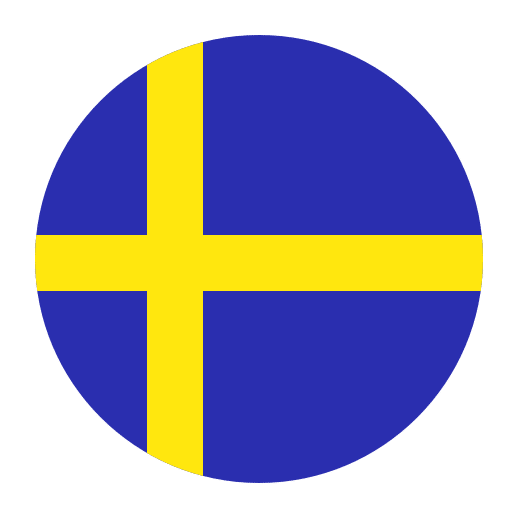Navigating the healthcare system in a foreign country can be a daunting task, especially when you don’t speak the language fluently. If you’re living in or visiting Sweden, having a grasp of some key Swedish phrases can make your interactions with healthcare professionals much smoother. This article will provide you with essential Swedish phrases that can help you communicate effectively with doctors, nurses, and other medical staff. Whether you’re scheduling an appointment, describing symptoms, or asking for help, these phrases will be invaluable.
Basic Phrases for a Healthcare Visit
When you first arrive at a healthcare facility, you’ll likely need to introduce yourself and state the purpose of your visit. Here are some basic phrases that can help you get started:
– “Hej, jag heter [Your Name].” (Hello, my name is [Your Name].)
– “Jag har en bokad tid.” (I have an appointment.)
– “Jag behöver träffa en läkare.” (I need to see a doctor.)
– “Kan jag få träffa en sjuksköterska?” (Can I see a nurse?)
– “Jag mår inte bra.” (I am not feeling well.)
Scheduling an Appointment
Scheduling an appointment over the phone or in person can be one of the first steps you’ll take. Here are some useful phrases for setting up a healthcare appointment:
– “Jag skulle vilja boka en tid hos läkaren.” (I would like to book an appointment with the doctor.)
– “När har ni lediga tider?” (When do you have available times?)
– “Kan jag få en tid så snart som möjligt?” (Can I get an appointment as soon as possible?)
– “Jag behöver avboka min tid.” (I need to cancel my appointment.)
– “Kan jag ändra min tid?” (Can I reschedule my appointment?)
Describing Symptoms
Being able to describe your symptoms accurately is crucial for receiving the right treatment. Here are some phrases that can help you explain what you’re experiencing:
– “Jag har ont i [body part].” (I have pain in [body part].)
– “Jag har haft ont i huvudet i tre dagar.” (I have had a headache for three days.)
– “Jag känner mig yr.” (I feel dizzy.)
– “Jag har feber.” (I have a fever.)
– “Jag har svårt att andas.” (I am having trouble breathing.)
– “Jag har förlorat smak och lukt.” (I have lost taste and smell.)
– “Jag har utslag på huden.” (I have a rash on my skin.)
Asking About Treatment and Medication
Once you’ve described your symptoms, you may need to ask about possible treatments or medications. Here are some phrases that can help:
– “Vilken behandling rekommenderar ni?” (What treatment do you recommend?)
– “Finns det någon medicin jag kan ta?” (Is there any medication I can take?)
– “Hur ofta ska jag ta medicinen?” (How often should I take the medication?)
– “Finns det några biverkningar?” (Are there any side effects?)
– “Hur länge ska jag fortsätta med behandlingen?” (How long should I continue the treatment?)
Emergency Situations
In case of an emergency, knowing how to communicate quickly and effectively can be life-saving. Here are some phrases you might need in an emergency situation:
– “Det är en nödsituation.” (This is an emergency.)
– “Ring ambulansen!” (Call the ambulance!)
– “Jag behöver akut hjälp.” (I need urgent help.)
– “Jag tror att jag har brutit ett ben.” (I think I have broken a bone.)
– “Jag har svårt att andas.” (I am having trouble breathing.)
– “Jag har ont i bröstet.” (I have chest pain.)
Understanding Medical Instructions
After your consultation, you may receive medical instructions or prescriptions. Understanding these instructions is crucial for your recovery. Here are some phrases that can help you understand and follow medical advice:
– “Kan ni förklara det igen?” (Can you explain that again?)
– “Vad betyder det här?” (What does this mean?)
– “Hur ska jag ta den här medicinen?” (How should I take this medication?)
– “Finns det något jag bör undvika?” (Is there anything I should avoid?)
– “När ska jag komma tillbaka för en uppföljning?” (When should I come back for a follow-up?)
Pharmacy Visits
If you need to visit a pharmacy to pick up medication, these phrases can be useful:
– “Jag har ett recept att hämta ut.” (I have a prescription to pick up.)
– “Kan jag få det här receptet förnyat?” (Can I get this prescription refilled?)
– “Finns det ett billigare alternativ?” (Is there a cheaper alternative?)
– “Hur ofta ska jag ta den här medicinen?” (How often should I take this medication?)
– “Finns det några biverkningar jag bör vara medveten om?” (Are there any side effects I should be aware of?)
Common Medical Terms
Familiarizing yourself with some common medical terms in Swedish can also be helpful. Here are some terms you might encounter:
– Läkare (Doctor)
– Sjuksköterska (Nurse)
– Apotek (Pharmacy)
– Recept (Prescription)
– Medicin (Medicine)
– Smärta (Pain)
– Feber (Fever)
– Yrsel (Dizziness)
– Blodtryck (Blood pressure)
– Symptom (Symptom)
– Behandling (Treatment)
– Biverkning (Side effect)
Follow-Up Visits
After initial treatment, you may need to schedule follow-up visits to monitor your progress. Here are some phrases that can help you communicate during these visits:
– “Jag är här för en uppföljning.” (I am here for a follow-up.)
– “Jag känner mig bättre.” (I am feeling better.)
– “Jag känner ingen förbättring.” (I am not feeling any improvement.)
– “Ska jag fortsätta med den nuvarande behandlingen?” (Should I continue with the current treatment?)
– “Finns det något mer jag kan göra för att bli bättre?” (Is there anything else I can do to get better?)
Communicating with Specialists
Sometimes, you may need to see a specialist for more specific health issues. Here are some phrases that can help you when dealing with specialists:
– “Jag behöver träffa en specialist.” (I need to see a specialist.)
– “Kan ni rekommendera en bra specialist?” (Can you recommend a good specialist?)
– “Vad är nästa steg?” (What is the next step?)
– “Behöver jag några särskilda tester?” (Do I need any special tests?)
– “Vilka är riskerna med den här behandlingen?” (What are the risks of this treatment?)
Insurance and Payments
Understanding how to handle insurance and payments is also crucial when dealing with healthcare in Sweden. Here are some useful phrases:
– “Accepterar ni min försäkring?” (Do you accept my insurance?)
– “Hur mycket kommer det att kosta?” (How much will it cost?)
– “Kan jag få en faktura?” (Can I get a bill?)
– “Täcker min försäkring detta?” (Does my insurance cover this?)
– “Finns det några extra avgifter?” (Are there any additional fees?)
Additional Tips for Communicating with Healthcare Professionals
While knowing these phrases can significantly improve your ability to communicate with healthcare professionals in Sweden, here are some additional tips to keep in mind:
1. **Speak Slowly and Clearly**: Even if you know the right phrases, speaking slowly and clearly can help ensure that you are understood.
2. **Use Gestures**: If you’re struggling to find the right words, using gestures can help convey your meaning.
3. **Write It Down**: If possible, write down important information such as symptoms, medications, and questions before your visit. This can help you communicate more effectively.
4. **Ask for Clarification**: Don’t hesitate to ask for clarification if you don’t understand something. It’s important to fully understand medical advice and instructions.
5. **Bring a Friend or Family Member**: If you’re not confident in your Swedish skills, bringing a friend or family member who speaks the language can be very helpful.
By familiarizing yourself with these Swedish phrases and tips, you’ll be better prepared to navigate the healthcare system in Sweden. Good communication is key to receiving the best possible care, and these phrases can help bridge the language gap, ensuring you get the help you need. Lycka till! (Good luck!)

